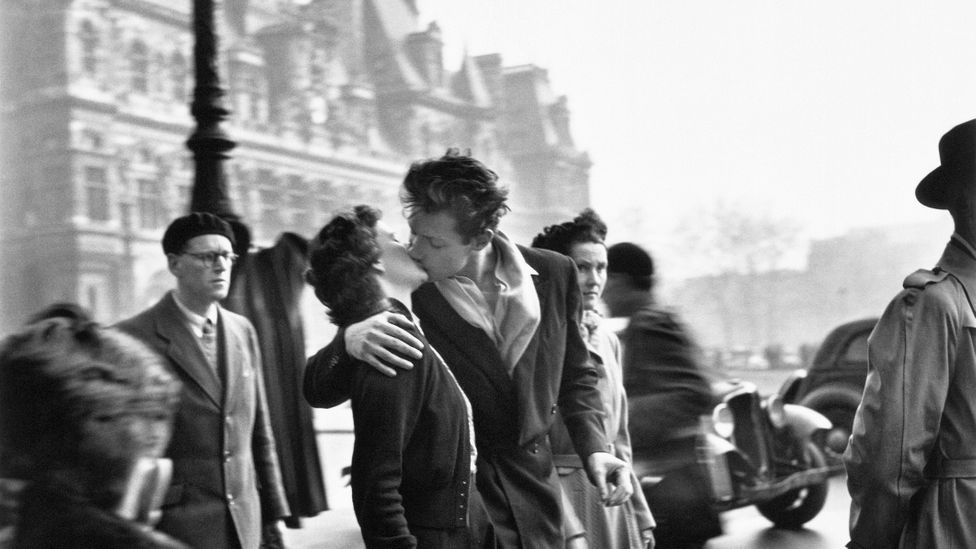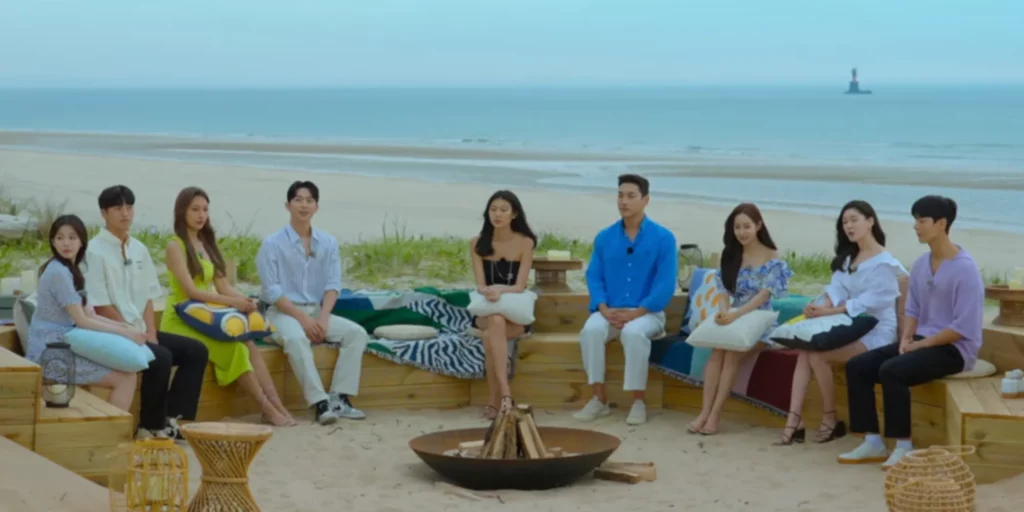Following the passing of a 17-year-old adolescent, France was engulfed in a nationwide demonstration, predominantly originating from suburban areas.
This appears to be the tipping point. I believe this demonstration primarily revolves around the pursuit of equal opportunities.
This piece holds personal significance for me as it not only delves into the protests but also encapsulates my broader sentiments concerning growing up in France as the child of immigrants.
Does equality of opportunity exist in France ?

The complexity of this question arises from various factors that extend beyond ethnicity alone. One crucial lesson I’ve gleaned from my experiences in establishing a company is that when assembling a team, fostering a compatible culture is paramount.
From an objective standpoint, many might assume that competence reigns supreme, as having the most skilled individuals is essential for success.
However, reality often diverges from this perspective; in the context of long-term strategic planning, alignment and cohesion among team members are vital. Collaboration resembles a concerted effort where interpersonal dynamics play a pivotal role.
This is exemplified by the case of French football team manager Deschamps’ decision not to include Benzema in the national team, despite his Ballon d’Or accolade. It underscores the significance of shared values and unity, even over individual talent. Benzema’s principles are deeply rooted in his background.
Nevertheless, such considerations can also be viewed through the lens of group identity politics, which can be perilous given the inherent diversity among individuals.
Pareto distribution

Inherent inequality characterizes the world in various aspects. Attributes such as IQ, beauty, and talent are naturally distributed unevenly within populations. Moreover, aspects of one’s character also bear some innate predisposition. What remains as a variable within one’s control is essentially hustling, yet even this endeavor is susceptible to one’s capacity for stress tolerance.
Why some people reject French culture ?

French culture enjoys global renown and admiration for its savoir-faire, culinary traditions, artistic achievements, and luxury goods. Additionally, France stands as a secular nation, devoid of an official religion, with approximately 40% of its population identifying as atheists.
It’s reasonable to assert that French culture leans heavily towards rationality, to the extent that intellectuals have historically held esteemed positions within society, revered as exemplars, a tradition predating even the golden era of Hemingway.
Contrary to this, the prevailing global value system often tends to depict intellectuals as excessively rational. In movies, they are frequently portrayed as pragmatic individuals, often lacking in social graces, disconnected from their emotions, and deficient in empathy and compassion. Occasionally, they are depicted as lacking in courage and physical prowess.
This portrayal aligns them well with antagonistic roles in popular culture. They embody a persona more concerned with truth, knowledge, and personal gain than with the well-being of others. Such characters may perceive divorce, adultery, narcissism, and collateral damage as acceptable facets of life, viewing them either as expressions of tolerance and freedom or as sins leading to damnation.
To be equitable, this cultural phenomenon primarily prevails among the elite; from my observations, individuals from rural areas or other urban centers often adhere to a more universal set of values.
Moreover, this tendency is not unique to France; in most countries, politicians and scientists tend to exhibit a high degree of pragmatism. However, in France, these characteristics have permeated the population, manifesting in forms of nihilism and depression, as evidenced by the country’s leading position in antidepressant consumption.
This intellectual elitism may stem from the legacy of a nation historically governed by numerous kings and monarchies—a society structured around lineage and inherited rights.
The ideal in the other parts of the World

Universal Values are often described as shared knowledge inherited through generations, representing an ideal way of existence. They embody an optimized approach to achieving success within a community, reflecting the belief that life is not merely a game but a series of endeavors akin to championships.
Therefore, behaviors such as displaying humility in defeat hold significant importance, as one must first earn the invitation to partake before striving for victory.
Morality also serves to imbue one’s life with meaning, purpose, and decency. Without a defined set of values or desired outcomes, life lacks direction or significance. The greater the misalignment between a person’s conduct and their ideals, the more their confidence diminishes.

I find it hard to believe that the collective wisdom of numerous countries could be mistaken. Across many nations, there’s a general acknowledgment of the importance of morality, spirituality, and luck in facilitating optimal human functioning.
Consequently, the values upheld in various countries, as well as by a significant portion of the elite, tend to prioritize humility, selflessness, and compassion, evoking admiration rather than envy, especially in public spheres.
Cognitive dissonance

For many individuals, embracing a state of erudition can often pave the way to nihilism, a detrimental mindset devoid of both peace and happiness. Depression emerges as a highly probable consequence.
As mentioned earlier, morality and universal values are ingrained in people’s genetic makeup, suggesting a biological foundation rather than a matter of conscious control.
The cognitive dissonance arising from the clash between two belief systems induces significant anxiety and stress, akin to a situation where the fundamental beliefs governing one’s biology seem misaligned.
Moreover, these conflicting thoughts act as opposing forces, akin to polarizing elements exerting pressure in divergent directions. Such a scenario often fosters an environment ripe for animosity within a population.
In France, some individuals find themselves compelled to renounce and ridicule their origins in order to thrive, instead of embracing them with pride and recognizing them as a source of strength. This reality is deeply disheartening.
Setting aside discussions on identity politics, I firmly believe that authenticity always trumps the pursuit of an inferior imitation of someone else.
Misconception about unemployment

There exists a common misconception that individuals are inherently lazy or possess flawed character traits, which is presumed to hinder their progress.
However, the reality is that many are disenchanted due to the absence of compelling opportunities in their current circumstances. Not everyone finds fulfillment in dedicating the bulk of their time to a monotonous 9-to-5 job, merely for the sake of material comfort and the superficial allure of conspicuous consumption.
From their educational experiences, most individuals glean the understanding that life holds greater depth and adventure beyond the confines of routine. They recognize the value of pursuing meaningful goals and deriving purpose from overcoming challenges, thereby reclaiming ownership of their most precious possession: time, and the present moment.
Hence, many aspire to professions such as athletics, music, art, YouTube content creation, culinary arts, and more, seeking engagement in the daily process of their endeavors. Rather than resigning themselves to the numbing monotony of conventional employment, they strive for experiences that offer genuine fulfillment and meaning.
People are perceptive and inherently recognize this underlying truth. Consequently, they remain disinterested in pursuing conventional employment unless it aligns with a more meaningful and fulfilling purpose.
Why are people seeking travel and adventure?
Individuals seek meaningful encounters and transformative experiences, striving to enhance both their competence and character to maximize the value they offer to others.
This inclination is evident in our preference for adventure films featuring characters who undergo significant personal growth.
Similarly, our fascination with sports extends beyond mere athletic prowess; we admire athletes who pursue challenging goals and occasionally achieve them through sheer determination.
Undoubtedly, genuine adventures entail real hardships and risks. For an adventure to be truly fulfilling, the obstacles must be formidable and capable of presenting genuine threats. Not everyone will succeed in overcoming such challenges.
Yet, perhaps the greatest risk lies in gradually succumbing to resentment over a life unlived. Waking up at the age of 60 and realizing that the opportunity for meaningful adventures may have passed.
Why is the material not enough?

Simply put, we do not possess absolute ownership of our bodies; rather, we are essentially leasing and maintaining them, eventually returning them to nourish the earth.
Everything, without exception, will eventually decay into dust; the only variable is the duration of time. While these assertions may appear pessimistic, the fundamental concept is that material possessions serve merely as tools for experiencing life.
Accumulating material wealth often leads to increased anxiety. In certain regions, the contents of a household hold minimal value and can be handled freely by children.
Owning expensive items introduces additional concerns about potential damage or theft. Conversely, not possessing such possessions allows for a sense of freedom to welcome others without apprehension, fostering genuine connections with people rather than with material possessions.
What is conspicuous consumption?

Conspicuous consumption, characterized by purchasing luxury items or flaunting wealth, essentially involves attempting to acquire outward symbols of personal advancement.
In essence, it serves as a superficial remedy for one’s insecurities. Rather than genuinely embarking on personal growth adventures and maximizing one’s societal contribution, individuals opt to feign belonging to the same echelon as those who do.
This trend is particularly evident among the middle class, as they endeavor to set themselves apart from their peers.
Luxury brands frequently enlist successful individuals as sponsors to showcase their products, leveraging these figures to send a particular signal.
Why is traveling far important?

When venturing into new environments that demand a different version of oneself, dormant genes activate.
By traversing various locations, one achieves a deeper understanding of oneself, activating all aspects of their being.
I often emphasize that a parent’s primary objective is to instill in their child the ability to be welcomed by anyone, anywhere in the world. This entails teaching them to engage genuinely with others, not through pretense or falsehood, but by authentically embodying their best self.
The sense of admiration is outside our control
Individuals are often drawn to others due to a sense of admiration, a natural inclination beyond their control.
It’s a spontaneous reaction; one cannot dictate their points of interest or determine what becomes their ideal. This is why we are moved to tears when witnessing acts of heroism, as the sheer beauty of the gesture captivates us.
In cosmopolitan nations, the necessity for an ideal founded on universal values becomes apparent. This explains why immigrants tend to assimilate more seamlessly in countries like the United States and develop a stronger sense of patriotism. Similarly, it clarifies why Africans are inclined to migrate to England rather than France.
Schools were built for jobs not for vocations

Since Jules Ferry’s law in 1882, schooling has become mandatory. Initially, the school system was designed to occupy the children of factory workers during their parents’ shifts, with the objective of preparing them for future roles within the factories.
Prior to this legislation, children were often employed in these factories.
However, pursuing education isn’t necessarily the most direct path to finding a vocation. Instead, the primary aim of schooling is to instill compliance and prepare individuals to fill necessary yet often undesirable positions within society.
This explains why extensive time is spent studying concepts that could easily be accessed from a library or the internet.
In France, the government’s focus is more on maintaining societal structure rather than harnessing citizens’ skills or fostering creativity, a common approach observed in many governments.
As a result, individuals are often directed towards predefined job paths from a young age, with jobs being viewed as activities one engages in solely for monetary compensation.
The level of education attained often dictates the tolerability of the job obtained, as well as the perceived status associated with one’s attire, housing, and vehicle. However, this essentially marks the extent of the aspiration.
Furthermore, neighborhoods are often planned to accommodate specific classes of workers, whether they are engaged in manual or clerical work.
Twenty-three years of schooling isn’t necessarily geared towards making individuals productive in their chosen professions. Instead, it serves to limit options, essentially constraining individuals to choose a job out of necessity rather than desire.
Can you envision a life where the majority of your future is predetermined 30 years in advance? This is essentially what people resist by opting out of traditional employment and, instead, relying on social financial assistance.
The truth about careers

In reality, careers prove elusive for the majority of individuals; only a mere 2% of the population will attain prestigious, high-end careers. This achievement hinges on numerous factors, including IQ, genetic predisposition, stress tolerance, and more.
For the majority, the pursuit of a career takes a backseat at some point, with many shifting their focus towards family. Throughout history, family has consistently held paramount importance, except for a small fraction of exceptionally gifted individuals.
Vocation doesn’t necessarily mean a high-end career

As frequently reiterated, the journey holds greater significance than the destination itself. Developing an affinity for the daily routine is what enriches one’s life, rendering the outcomes less significant.
Engaging in activities you genuinely enjoy, which also sustain your livelihood and savings, holds more value than fixating solely on results. This could encompass professions like fishing or agriculture.
Ultimately, the rewards of pursuing meaningful work outweigh the toll of enduring a soul-crushing job devoid of purpose.
Vocations are competitive
In essence, these roles are characterized by high demand, resulting in fierce competition. Hence, it’s advisable to leverage your unique characteristics rather than solely relying on technical expertise.
Expertise, often gained through years of practical experience, is typically perceived as valuable in the industry. The initial hurdle is often entering the market to accumulate experience.
Subsequently, the challenge lies in leveraging this expertise to ensure a steady income stream. Generally, the more experience one accrues, the higher their earning potential. However, there’s always the looming threat of technological advancements or other disruptions impacting the field.
Why successful asian in France comes from Asia ?

Currently, the most revered Asian artists and muses for French luxury brands, whether it be Blackpink, Bong Joon Ho, or Hoyeon, do not originate from France.
This raises questions, considering France’s reputation for boasting top-tier art schools, culinary excellence, and a rich cultural heritage.
The shift towards a global market has prioritized universal values. For instance, Jenny from Blackpink faces criticism for straying from the ideal and delving into nihilistic themes in her role as an idol.
Giving your children an edge
Maybe this is the lesson parents should impart to their children from an early age:
Encourage them to cultivate inner security and pursue their personal sense of purpose, rather than seeking validation from their peers.
Guide them to harness their unique qualities and channel their skills and efforts towards offering maximum value to society in a way that resonates deeply with them.
If a child has ever shown aptitude in something, even once, they can grasp the potential of becoming formidable with dedication, time, support, and encouragement.
Offer them the opportunity to view life as an adventure, one intimately connected to the present moment, rather than merely a checklist of abstract tasks waiting to be completed.
How about leaving an heritage ?
Transferring your heritage to your children serves as a precautionary measure. No one is immune to accidents or unforeseen tragedies. Hence, it’s prudent to establish a contingency plan for your children.
Beyond that, it’s essential for your children to discover their purpose in this world. To achieve this, you must impart your own experiences, enabling them to benefit from years of accumulated wisdom.
Furthermore, it’s crucial to instill in them essential moral principles and skills, such as the ability to gain acceptance from anyone, anywhere, alongside virtues like diligence and compassion. This can be called a Legacy.
What about regular jobs?

It’s evident that not everyone can seamlessly integrate a vocation into their daily lives, a challenge not unique to any specific country.
The crux of the matter lies in the distribution of more favorable job opportunities, which tend to correlate with the duration of one’s education. Individuals from lower socioeconomic backgrounds often face disadvantages in pursuing lengthy studies.
Access to extended education is largely contingent upon one’s environment. While the option of attending private schools exists, it remains limited, and recruitment opportunities tend to favor individuals from similar socioeconomic backgrounds, creating a cycle of exclusion.
In my experience, I frequently receive inquiries from young individuals seeking to learn trades such as locksmithing or electrical work. However, it’s apparent that their enthusiasm for these professions is often lacking.
Many of the craftsmen within my network are children of immigrants, reflecting the intended aim of the initiative: to provide them with opportunities for decent livelihoods. However, for many, the primary motivation remains financial gain, with only a few managing to find deeper meaning in their work.
Regrettably, market demands dictate certain expectations from craftsmen, including proficiency in French communication and traits such as politeness, articulateness, honesty, and compassion. These attributes are often perceived as indicators of quality and cultural acceptance, particularly in the context of household services.
Conversely, individuals from certain social backgrounds may exhibit behaviors deemed undesirable by customers, such as disagreeableness and aggressiveness, further exacerbating prejudices and leading Parisian customers to prefer craftsmen from other areas whenever possible.
What about entrepreneurship or freelance work?

Individuals from these socioeconomic backgrounds also face cultural disadvantages. For instance, a child born in Paris to intellectual parents is likely to have more exposure to crafts and knowledge.
While most information is now accessible online, this disparity is gradually diminishing. However, these individuals often lack the conducive environment to pursue such endeavors unless they relocate and secure full-time employment elsewhere.
In terms of entrepreneurship, this arena arguably represents one of the most meritocratic systems, surpassing even traditional schooling. However, two notable issues arise. Firstly, France imposes the highest level of taxes, particularly those linked to salary and income, including social security contributions, retirement contributions, and social benefits. Consequently, individuals have limited capital available for investing in assets like real estate.
I find it disconcerting that we are forced to invest in retirement plans, with the expectation of receiving redistributed funds several decades later, by which time inflation may significantly devalue the currency, instead of investing it in real estate.
Most businesses tend to be small-scale operations. Consequently, owning a small business and earning a decent income is preferable to sporadic employment supplemented by social welfare. It often appears that the system is structured to limit individuals’ choices to low-paying jobs. This is evident in the increasing preference for roles like Uber or Deliveroo drivers over traditional employment options.
With the advent of the internet, launching a business and relocating oneself or one’s company has become more accessible.
Conclusion
Initially, I believe the government welcomed immigrants to fill low-wage and undesirable positions, which may have been unintended consequences of colonial projects. Consequently, many immigrants lack formal education or degrees.
As a result, the poor integration of immigrants, cultural differences, and the emergence of social housing-related conflicts may be attributed to government policies, or at least, decisions made by some politicians in the past.

From the outset, there has been a stark division among societal groups, with little desire to integrate these segments into the cultural advancement mission.
While there has been some evolution in societal attitudes towards egalitarianism, evident in instances such as rappers assuming roles as creative directors for luxury brands, there persists a lingering sentiment that individuals born in France to immigrant parents will perpetually be viewed as guests rather than fully embraced citizens. Moreover, if dissatisfied, they are often encouraged to seek opportunities elsewhere.
This inherent division undermines unity and obstructs the ability of French descendants of immigrants to contribute meaningfully to cultural and systemic progress without jeopardizing the country’s identity. While conservatives and native-born citizens may not endorse this approach, it is essential for those adopted into the community, as opposed to merely being seen as guests, to feel included and entitled to equal opportunities.
Perhaps what the culture requires is a shift towards wisdom over desire, celebrating admired individuals without succumbing to envy and embracing established universal values.


GIPHY App Key not set. Please check settings